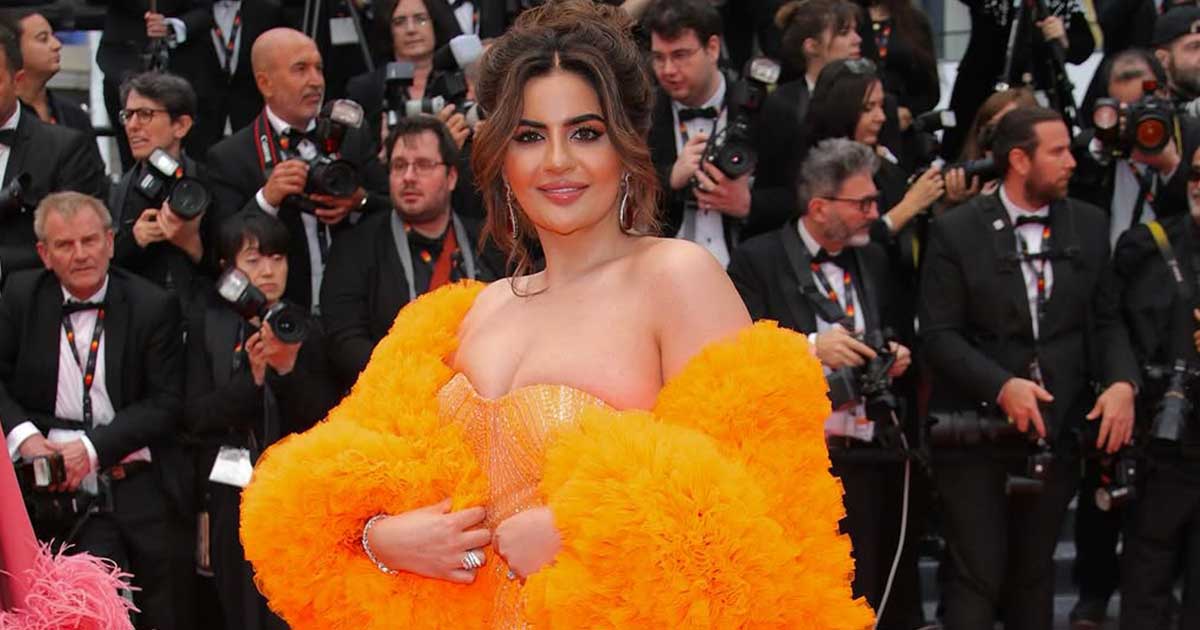Are you looking for a new phone under Rs 30,000 with good camera performance? Look no further! Team 91 Mobiles has tested the best camera phones available under Rs 30,000 in India and made a list based on their performance.
Best camera phones under Rs 30,000
|
Smartphone |
Price |
|
OnePlus Nord 4 |
Rs 29,999 |
|
Motorola Edge 50 Pro |
Rs 29,999 |
|
POCO F6 |
Rs 27,999 |
|
Samsung Galaxy M55 |
Rs 28,999 |
|
Realme 12 Pro+ |
Rs 28,999 |
|
Nothing Phone (2a) |
Rs 23,999 |
|
OPPO F27 Pro+ |
Rs 27,999 |
OnePlus Nord 4
The OnePlus Nord 4’s (review) camera system delivers decent details but nothing exceptional. Daylight photos have a natural look with high contrast and colours generally appear close to reality. There is good colour consistency between the 50MP primary and 8MP ultra-wide cameras, though the latter tends to produce slightly warmer images.
Its 16MP front camera produces natural-looking selfies in portrait mode. Simple point-and-shoot selfies may seem dull, but adjusting brightness fixes this issue. The Nord 4 performs well in dim conditions by increasing exposure time to capture more light. However, it struggles in extremely low-light areas, and night mode doesn’t help much.
|
Pros |
Cons |
|
Good colour consistency |
Average low-light performance |
|
Natural-looking portrait selfies |
Warmth in ultrawide shots |
Other specifications:
- Display: 6.74-inch 1.2K 120Hz AMOLED panel
- SoC: Qualcomm Snapdragon 7+ Gen 3
- RAM, storage: Up to 12GB RAM and 256GB storage
- Battery, charging: 5,500mAh battery with 100W charging
Motorola Edge 50 Pro
The Motorola Edge 50 Pro’s (review) cameras deliver impressive detail and sharpness in well-lit conditions, with a solid dynamic range. However, default colour reproduction can appear overly boosted with high contrast. The 10MP 3x telephoto lens shows a slight colour shift and lacks detail and sharpness. The 13MP ultrawide lens produces good images with slight edge distortion.
The 50MP primary camera captures decent details in low light with well-exposed shadows and controlled highlights. Moreover, the 50MP front camera maintains a good balance of facial detail but sometimes overexposes selfies with blown-out colours.
|
Pros |
Cons |
|
Excellent dynamic range |
Average colour reproduction |
|
Good low-light performance |
Poor edge distortion |
Other specifications:
- Display: 6.7-inch 1.5K 120Hz pOLED panel
- SoC: Qualcomm Snapdragon 7 Gen 3
- RAM, storage: Up to 12GB RAM and 256GB storage
- Battery, charging: 4,500mAh battery with 125W charging
POCO F6
The POCO F6’s (review) 50MP main camera delivers superior image quality with consistent colour calibration and prioritises cooler tones for a contrasty look. The 8MP ultrawide lens, however, shows warping at the edges and underwhelming detail.
In low light, image quality diminishes with increased noise and reduced detail and sharpness. While the Night mode helps reduce noise, it further compromises detail.
The 20MP front camera captures near-accurate skin tones in daylight but lacks facial detail due to noticeable smoothing. The portrait mode provides good edge detection, though the bokeh effect can seem unnatural.
|
Pros |
Cons |
|
Consistent colour calibration |
Average low-light performance |
|
Good dynamic range |
Noticeable smoothing in selfies |
Other specifications:
- Display: 6.67-inch 1.2K 120Hz AMOLED panel
- SoC: Qualcomm Snapdragon 8s Gen 3
- RAM, storage: Up to 12GB RAM and 512GB storage
- Battery, charging: 5,000mAh battery with 90W charging
Samsung Galaxy M55
The Galaxy M55’s 50MP primary camera excels in daylight, providing visually pleasing, well-exposed images with good detail, though colour accuracy isn’t perfect.
The 8MP ultrawide lens performs well in bright conditions but shows slight edge warping and less vibrant colours. Moreover, the 2MP macro lens captures close-up shots with underwhelming detail.
In low light, the Samsung Galaxy M55 (review) requires patience. It takes about 8 seconds for long exposure shots in night mode. The 50MP front camera delivers respectable facial detail with a slightly warm tone and portraits have a pleasing bokeh effect.
|
Pros |
Cons |
|
Excellent detail and exposure |
Poor colour accuracy |
|
Natural-looking portraits |
Average low-light performance |
Other specifications:
- Display: 6.7-inch FHD+ 120Hz Super AMOLED panel
- SoC: Qualcomm Snapdragon 7 Gen 1
- RAM, storage: 8GB RAM and up to 256GB storage
- Battery, charging: 5,000mAh battery with 45W charging
Realme 12 Pro+
The Realme 12 Pro+ (review) features a 64MP periscope telephoto lens with up to 120x digital zoom. However, the digital zoom beyond 6x is ineffective, showing a noticeable quality loss. The 3x zoom performs better, providing good dynamic range and colour consistency.
The 50MP primary sensor offers impressive details and sharpness despite slightly oversaturated colours. It captures good shadow details and consistent skin tones in the Photo and Portrait modes, though the latter occasionally blurs parts of the face. The 8MP ultra-wide lens captures sharp and vibrant images in good lighting but struggles in low light.
The night mode reduces noise and smoothens details for cleaner images. However, customised tilt OIS improves low-light photography by reducing light flare and improving stability. The 32MP front camera provides good skin tones and slight smoothening, but there are some issues, like focusing issues and image processing delays.
|
Pros |
Cons |
|
Cleaner low-light images |
Poor digital zoom quality |
|
Good dynamic range and colour consistency |
Focusing issues |
Other specifications:
- Display: 6.7-inch FHD+ 120Hz AMOLED panel
- SoC: Qualcomm Snapdragon 7s Gen 2
- RAM, storage: Up to 12GB RAM and 256GB storage
- Battery, charging: 5,000mAh battery with 67W charging
Nothing Phone (2a)
In daylight, Nothing Phone (2a) (review) the 50MP rear cameras deliver appealing images with plenty of detail, good dynamic range, high contrast, and sharpness. The ultra-wide lens captures decent shots with good dynamic range and contrast but tends towards warmer tones.
In low light, the cameras automatically switch to night mode for long exposure shots for crisp, sharp, and vibrant images with excellent exposure and minimal noise. Turning off night mode can produce hazy, grainy, and less lively images. Moreover, the Glyph Interface provides additional lighting in dim areas.
The 32MP front camera excels in daylight, capturing selfies with excellent exposure and accurate skin tones. However, its performance in low light isn’t as good as the rear cameras.
|
Pros |
Cons |
|
Good dynamic range and contrast |
Colour shift in ultrawide shots |
|
Glyph Interface helps in dimly lit areas |
Poor low-light performance in selfies |
Other specifications:
- Display: 6.7-inch FHD+ 120Hz AMOLED panel
- SoC: MediaTek Dimensity 7200 Pro
- RAM, storage: Up to12GB RAM and 256GB storage
- Battery, charging: 5,000mAh battery with 45W charging
OPPO F27 Pro+
The OPPO F27 Pro+ (review) features a dual rear camera setup: a 64MP primary shooter and a 2MP portrait camera. The 8MP front camera features an AI Portrait Retouching feature to improve the quality of selfies.
In daylight, the device clicks decent shots with good detail and colour accuracy. The F27 Pro+ delivers precise, true-to-life colours, and preserves details well. However, it struggled with capturing outlines in certain cases.
While the phone didn’t present banding issues in the low-light/night scenarios, it struggled to capture details in low-light scenarios. As a result, some dark areas end up as dark patches in pictures.
|
Pros |
Cons |
|
Detailed and colour-accurate images |
Lacks detail in low-light conditions |
|
Useful photo editing AI features |
Struggles with capturing outlines |
Other specifications:
- Display: 6.7-inch FHD+ 120Hz AMOLED panel
- SoC: MediaTek Dimensity 7050
- RAM, storage: 8GB RAM and up to 256GB storage
- Battery, charging: 5,000mAh battery with 67W charging







